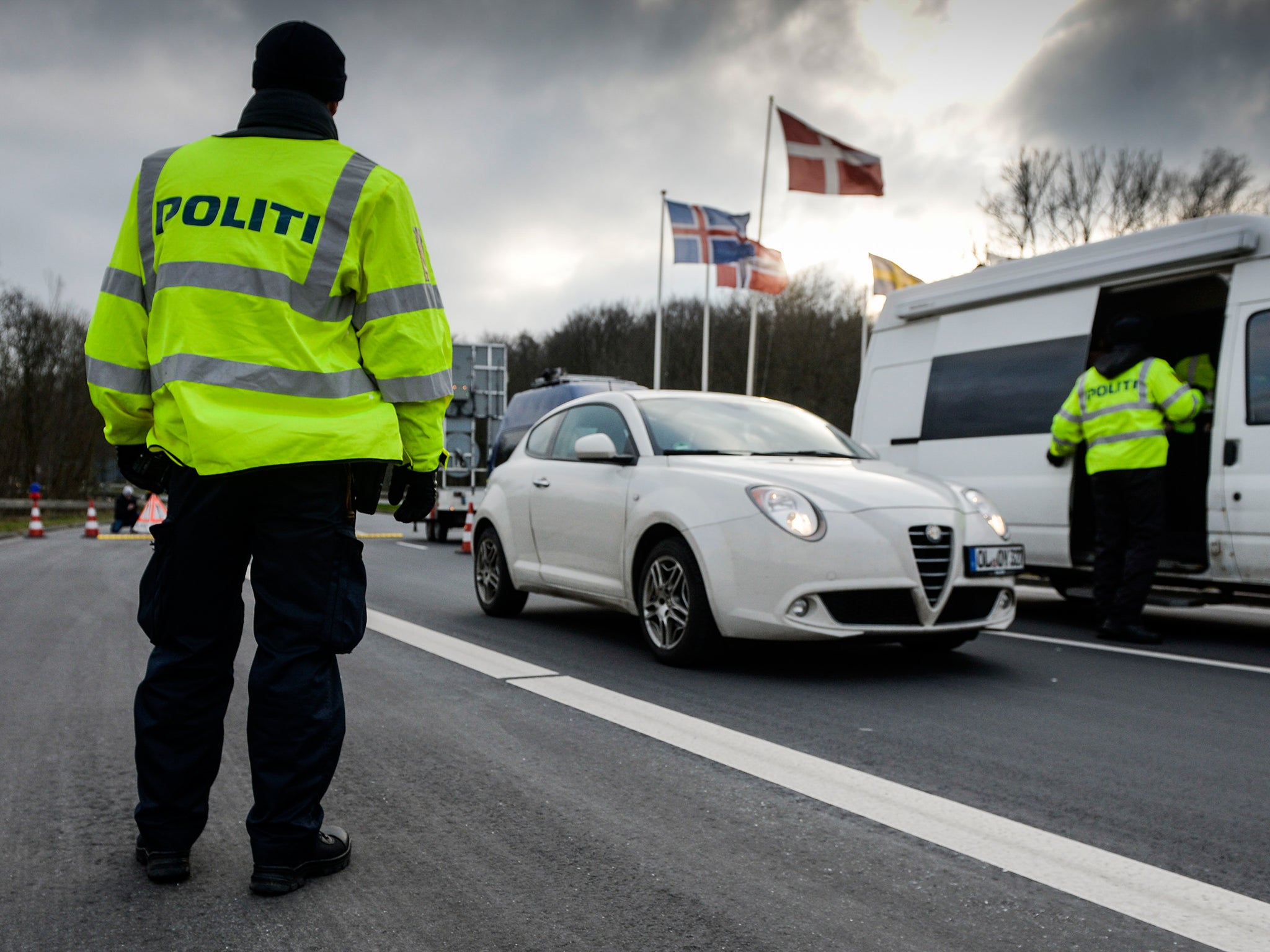Refugee crisis: Six countries in Schengen now have border checks in place
Security measures raise doubts about future of free movement within the 26 nations in the document-free travel area

Your support helps us to tell the story
From reproductive rights to climate change to Big Tech, The Independent is on the ground when the story is developing. Whether it's investigating the financials of Elon Musk's pro-Trump PAC or producing our latest documentary, 'The A Word', which shines a light on the American women fighting for reproductive rights, we know how important it is to parse out the facts from the messaging.
At such a critical moment in US history, we need reporters on the ground. Your donation allows us to keep sending journalists to speak to both sides of the story.
The Independent is trusted by Americans across the entire political spectrum. And unlike many other quality news outlets, we choose not to lock Americans out of our reporting and analysis with paywalls. We believe quality journalism should be available to everyone, paid for by those who can afford it.
Your support makes all the difference.Six countries in Europe's document-free travel area now have wide-ranging border checks in place following Denmark's decision to tighten controls on its southern border with Germany.
Denmark made the move after Sweden imposed ID checks for rail passengers traveling between the two. Others to reintroduce checks to cope with mass flows of migrants are Austria, Germany and Norway, which is not a European Union member. France has them in place due to the attacks in Paris.
The security measures have raised doubts about the future of free movement within the 26 nations that make up the Schengen area - named after the Luxembourg town where it was set up in 1985.
Why the need for routine border checks?
The EU estimates that more than 1.5 million people crossed Schengen area borders in an "irregular" way last year. The arrival of hundreds of thousands of people in Greece and Italy totally overwhelmed their border authorities, leaving many free to try to move further north to preferred destinations like Germany and Sweden. As those nations feel the pressure, they have sometimes tightened their southern borders, creating a domino-like effect back down the line.
Are they allowed to?
Yes; it's inconvenient for travelers but it's not breaking the rules. Europe's refugee emergency is considered to be an exceptional event. Countries fearing for public safety due to unpredictable migrant movements must give notice of their intentions to the European Commission, which supervises the Schengen rulebook. They can introduce checks for up to 30 days at a time for a maximum of six months. If they want to move faster and don't give enough notice, like Denmark, they can initially introduce checks for 10 days then extend that for periods of up to 20 days for two months.
Are these six nations respecting the rules?
The Commission says the actions by Austria, France, Germany, Norway and Sweden are acceptable, as they are proportionate to the public security threat these countries might face. It is still assessing Denmark's decision and has not indicated when that assessment might be complete.
So is Europe's passport-free travel dream dead?
EU officials say Schengen rules are working. But it's fair to say the system is not well. The real solution is to have fully functioning security controls on Europe's borders to the outside world. If people can move freely through the EU's external borders and are not registered on arrival in Greece or Italy, then it's a simple matter for them to move on and threaten the whole system. The Commission is expected to unveil in March "targeted" modifications to the rulebook that would tighten the external borders and improve Europe's asylum application rules.
Associated Press
Join our commenting forum
Join thought-provoking conversations, follow other Independent readers and see their replies
Comments